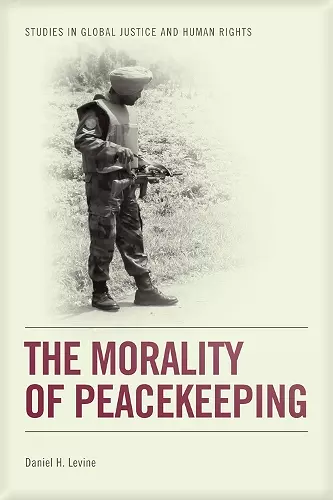The Morality of Peacekeeping
Format:Hardback
Publisher:Edinburgh University Press
Published:11th Dec '13
Currently unavailable, and unfortunately no date known when it will be back

Peacekeeping, peace enforcement and ‘stability operations’ ask soldiers to use violence to create peace, defeat armed threats while having no enemies and uphold human rights without taking sides. The challenges that face peacekeepers cannot be easily reduced to traditional just war principles. Built on insights from care ethics, case studies including Darfur, the Democratic Republic of the Congo, Haiti and Liberia and scores of interviews with peacekeepers, trainers and planners in the field in Africa, India and more, Daniel H. Levine sheds light on the challenges of peacekeeping. And he asserts that the traditional ‘holy trinity’ of peacekeeping principles – consent, impartiality, and minimum use of force – still provide the best moral guide for peacekeepers.
This book reads, in part, as a ‘conversation with self’, deeply reflective, clear and helpful as Daniel Levine grapples with and explains the moral nature of peacekeeping. Hugely illustrative and rich. * Jakkie Cilliers, Executive Director, Institute for Security Studies, Pretoria office *
Far and away the finest and clearest analysis of the ethical dimensions of this important peacebuilding tool written to date. Levine dives into long-standing issues of consent, impartiality, use of force, and civilian protection and comes up with novel insights and arguments of enormous appeal, logic, and practicality, while ensuring throughout a good theoretical grounding. I believe this book will prove a landmark in this field, an essential go-to for scholars and practitioners alike. * William Durch, The Stimson Center *
ISBN: 9780748675890
Dimensions: unknown
Weight: 708g
376 pages